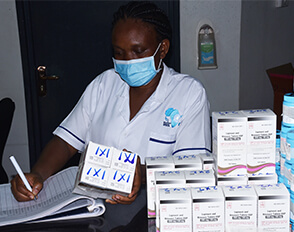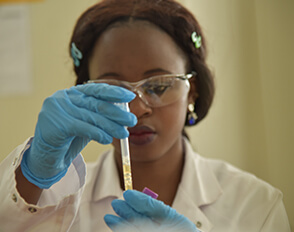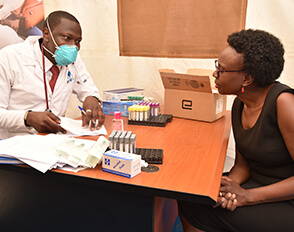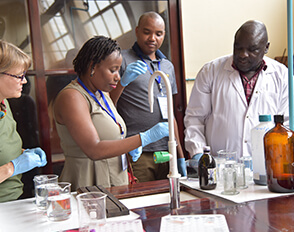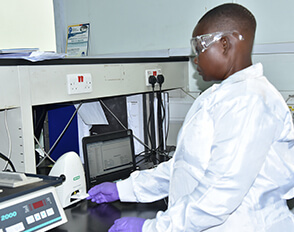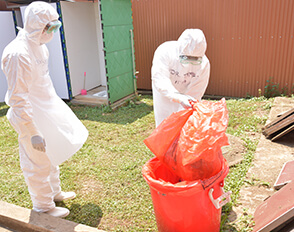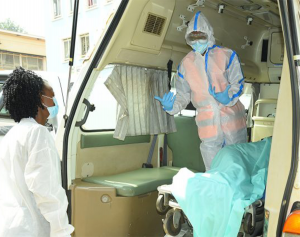
What We Do
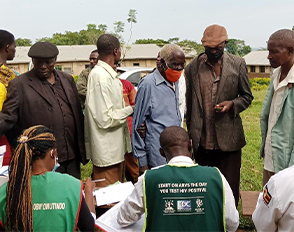
IDI, US CDC, and Uganda’s National Expanded Program for Immunization (UNEPI) partnered to use the Social Assistance Grant for Empowerment (SAGE) program, offering stipends to those 80 and older, to boost elderly vaccination. The SAGE model was implemented in regions like Mityana, Luweero, and Kiboga, overcoming challenges like distance, poor mobilization, misconceptions, and vaccine hesitancy.
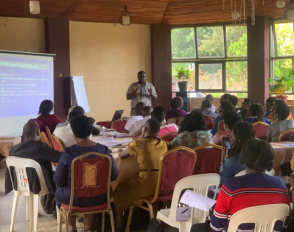
Kampala Metropolitan Area with support from IDI looked at strengthening facility-based surveillance and improving the index of suspicion for EVD.
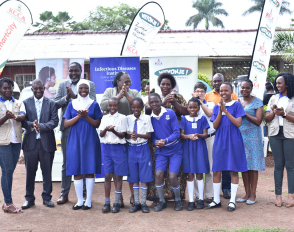
The Infectious Diseases Institute’s teams, including IPC, WASH, Prevention, Care and Treatment program, collaborated with the Ministry of Health, Kampala Capital City Authority, and various partners in Uganda to celebrate and mark World Hand Hygiene Day day.
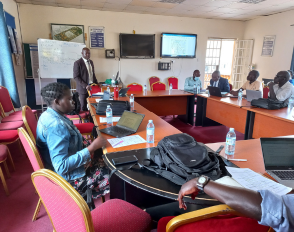
The One Health project supported the development and dissemination of comprehensive seasonal calendars, outlining the various weather shifts, agricultural practices, and health concerns associated with each season.
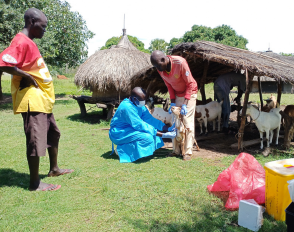
The One Health project in Uganda’s West Nile Region supports the establishment of robust laboratory systems to detect and prevent zoonotic diseases. The project aims to strengthen human, animal, and environment health networks, integrating specimen transportation networks and early confirmation of transboundary and priority diseases.
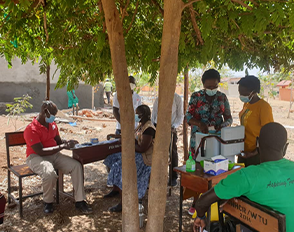
In partnership with Infectious Disease Institute (IDI) and other partners, the Ministry of Health (MOH) employed several strategies to increase COVID-19 vaccine uptake among refugees in 5 districts in West Nile from March to October 2022.
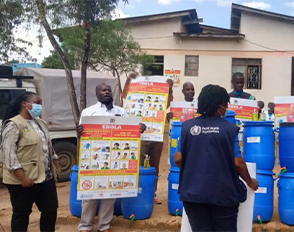
The IPC technical working group implemented the World Health Organisation (WHO) ring approach to identify priority areas for rapid support
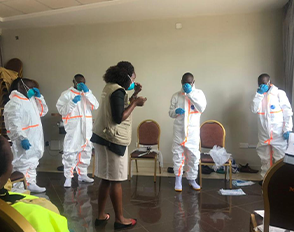
The Infectious Diseases Institute (IDI) received a request from the MoH to implement the Ring IPC strategy and scale up IPC within the facilities to interrupt the transmission.
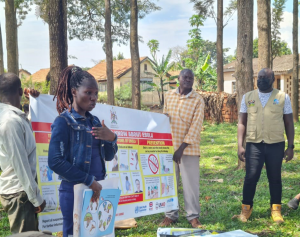
IDI collaborated with the Ministry of Health to support district efforts to map and mobilize available community task force members at the Village, Parish, and sub-county levels, to strengthen community response structures.
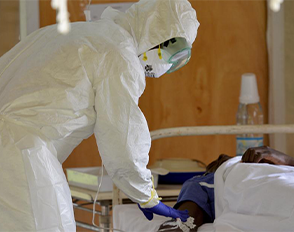
With efforts from a team from IDI alongside Mubende regional referral staff, early identification and isolation of Ebola patients reduced the risk of EVD transmission to healthcare workers and other patients in the hospital wards.
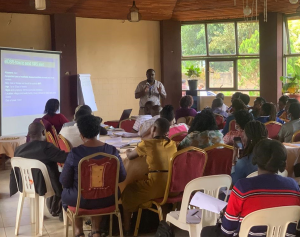
IDI supported Kampala Metropolitan Area to strengthen facility-based surveillance to improve the index of suspicion for SUVD.
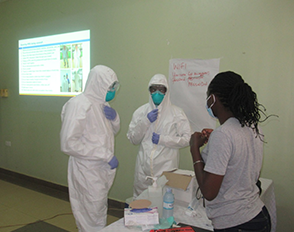
The Infectious Diseases Institute (IDI) was identified as the lead partner to support rapid training. The IDI laboratory technical team developed the Ebola laboratory training package and rapid cascade training model for laboratory response teams across the country.
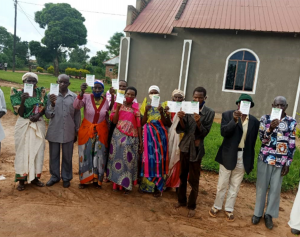
U.S. CDC in Uganda worked closely with Infectious Diseases Institute (IDI), a local partner, to support the Ministry of Health’s efforts to get COVID-19 vaccines to people at high risk of serious illness.
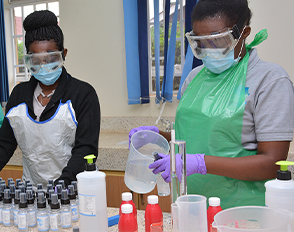
IDI established six Alcohol Based Hand Rub (ABHR) production units in Uganda to increase access among health workers and the community in target locations.
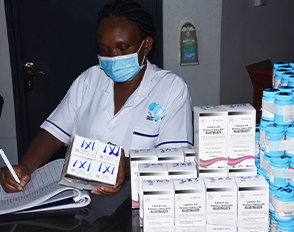
IDI and other partners conceived, developed, and implemented a new Vaccination at Point of Care Model to extend outreach services to health facilities
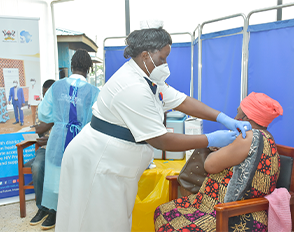
The Infectious Diseases Institute (IDI) supported the Kampala Metropolitan Area Public Health Emergency Operations Centre (KMA PHEOC) in establishing a regional partner engagement platform.
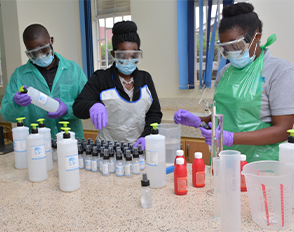
Celebrating the remarkable work in countries around the world using hand hygiene and infection prevention and control (IPC) to create a culture of quality and safety in healthcare facilities.
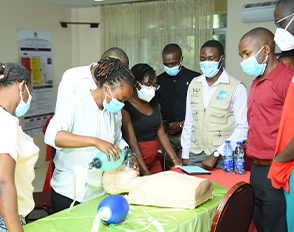
Emergency Medical Care is an essential element of universal health coverage as it is often one’s first point of contact with the health system. IDI, aims to strengthen EMS to reduce preventable deaths from complications of COVID19 and other emergencies
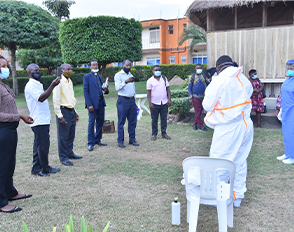
IDI sought to strengthen structures for the technical implementation of IPC programming for the Faith-Based health facilities through a Champion-led model.
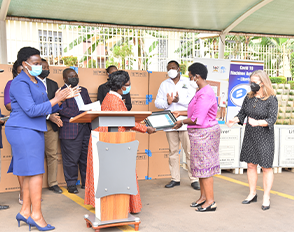
The National Microbiology Reference Laboratory at UNHLS became the first government-owned laboratory in Uganda to attain accreditation by the US College of American Pathologists (CAP).
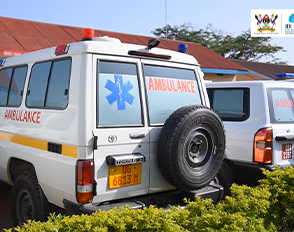
Emergency Medical Care is an essential element of universal health coverage as it is often one’s first point of contact with the health system. IDI, aims to strengthen EMS to reduce preventable deaths from complications of COVID19 and other emergencies

